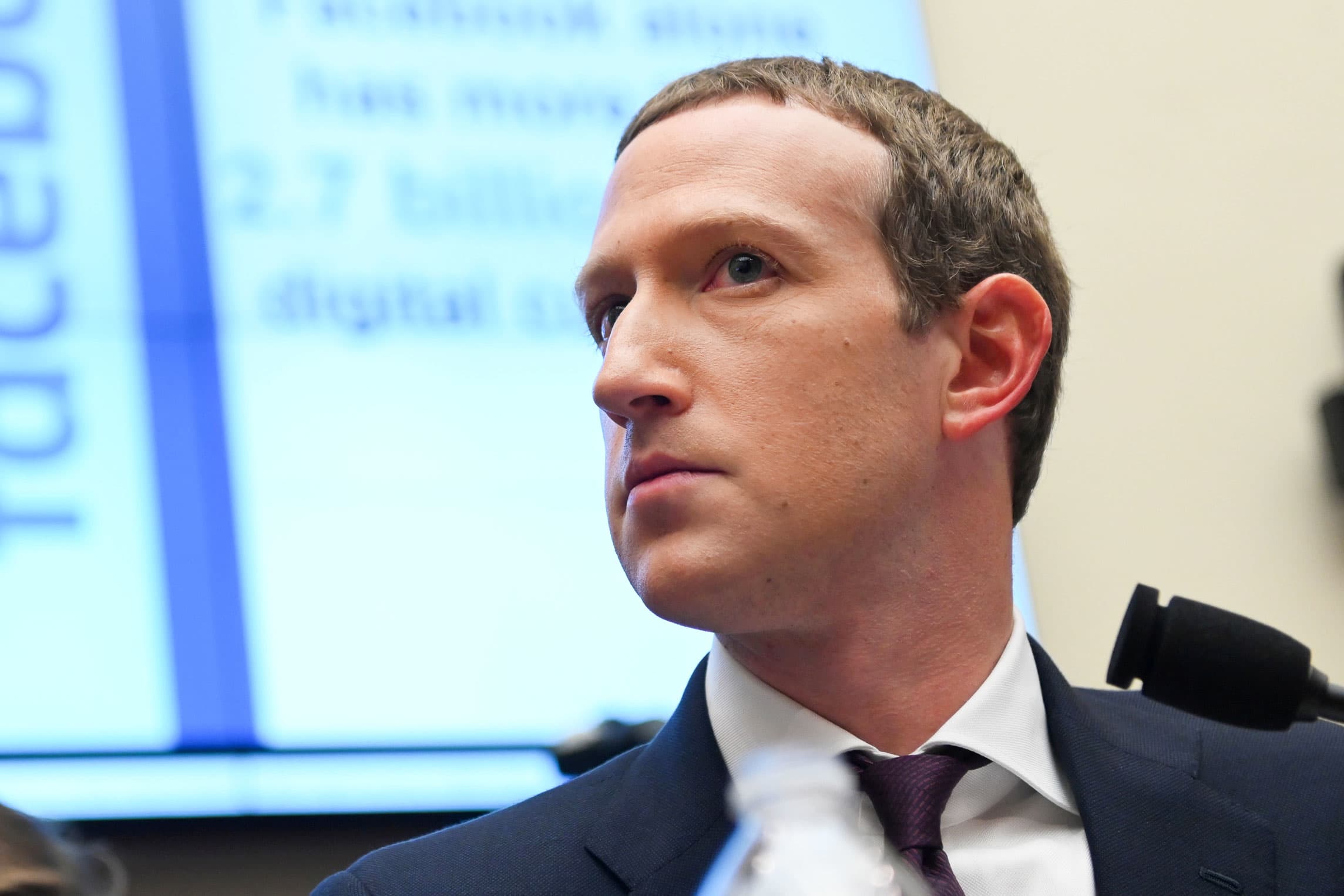
Facebook Chairman and CEO Mark Zuckerberg testifies at a House Financial Services Committee hearing in Washington, October 23, 2019.
Erin Scott | Reuters
Facebook's latest "copycat" app sent shares of Pinterest falling 4% after hours on Thursday, but history shows investors may not have too much to worry about.
While Facebook's Stories feature infamously drew from a popular feature in Snap's flagship Snapchat app, the company has historically had less success when it comes to cloning full, stand-alone apps.
On top of that, this week, the Federal Trade Commission announced it is launching a study of past small acquisitions by Facebook and its peers that did not require prior review by antitrust regulators. While the study is not an enforcement matter, Chairman Joe Simons emphasized the agency could take enforcement action if it stumbles across an issue. With the FTC already probing Facebook for potentially anticompetitive conduct, Facebook could try to lay low with new acquisitions and instead try to build its own products in-house.
Facebook has created a developer group known as the NPE Team to focus on new consumer-focused apps. Facebook said in a blog post it wanted to launch the apps under a separate brand name, which stands for New Product Experimentation, "to help set the appropriate expectations with users that NPE Team apps will change very rapidly and will be shut down if we learn that they're not useful to people."
Facebook declined to comment.
Here's a look at some of the past "copycat" apps Facebook has launched:
Rooms
Facebook's AOL-style chatroom app was born out of its Creative Labs initiative that ultimately shut down after several of the experimental apps it created failed to catch on. Facebook product manager Josh Miller said at the time that with Rooms, the team wanted to combine the "ethos of these early web communities and the capabilities of modern smartphones," according to Engadget. The app was shut down in 2015.
Poke
This Snapchat competitor launched in 2012, playing off of Facebook's popular "poke" feature on its site. Like Snapchat, the app let users send disappearing photos, messages and videos, but also included CEO Mark Zuckerberg's voice as the alert sound. Facebook pulled the app in 2014 after failing to lure enough users from Snapchat, The Verge reported.
Slingshot
Slingshot was another disappearing media sharing app meant to take on Snapchat, launched in 2014. Users had to send a photo back to the sender in order to see their message, according to The Verge. This Creative Labs project was pulled in 2015.
MSQRD
Facebook bought Masquerade, in 2016, which made the app MSQRD that adds filters to video. The acquisition came shortly after Snapchat acquired Looksery, an app that adds the animated face lenses popular on the app, TechCrunch reported at the time. The app still seems to exist as a stand-alone, though Snapchat seems to maintain the brand recognition and continue to build on its face animation technology.
Lasso
Lasso is another app that's still live today and appears similar to TikTok, the viral Chinese video app that has become the latest adolescent obsession. While it's still early in the game, there's no sign yet it's caught on to the same degree as TikTok. Last year, CNBC reported that TikTok had been downloaded from the Apple App Store and Google Play by 39.6 million U.S. users since early November 2018, based on third-party estimates provided to CNBC by app market intelligence firm SensorTower. During the same period, Lasso had been downloaded by 70,000 users.
Subscribe to CNBC on YouTube.
WATCH: What is Pinterest and how does it make money?
Read More
